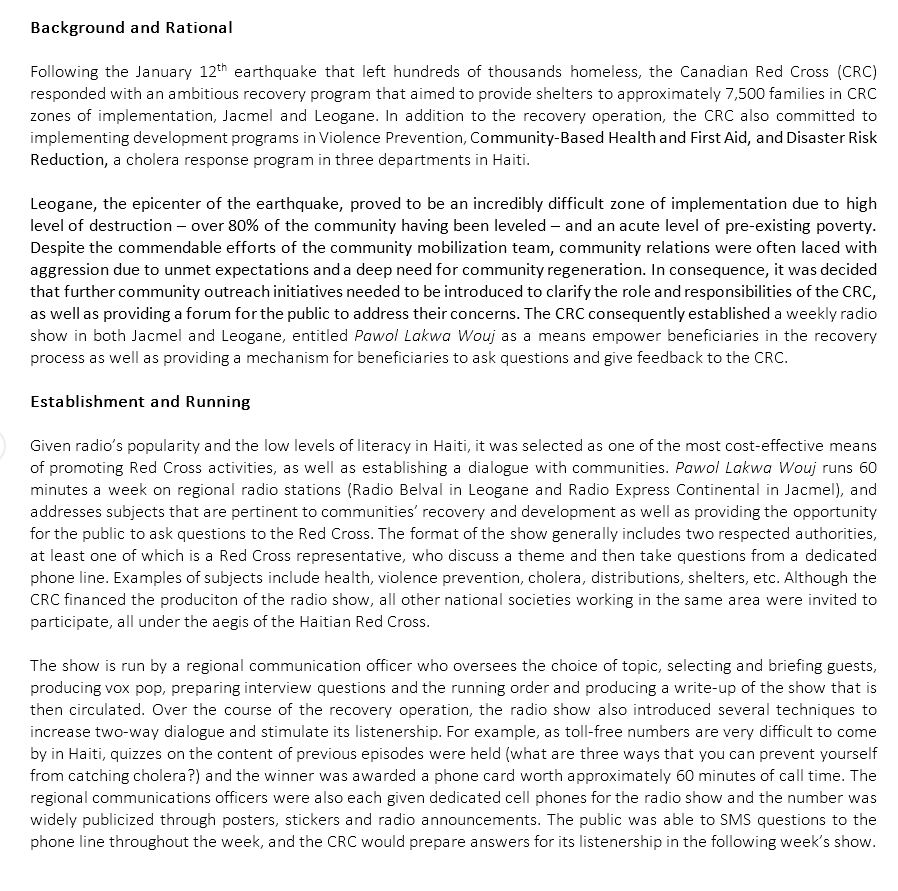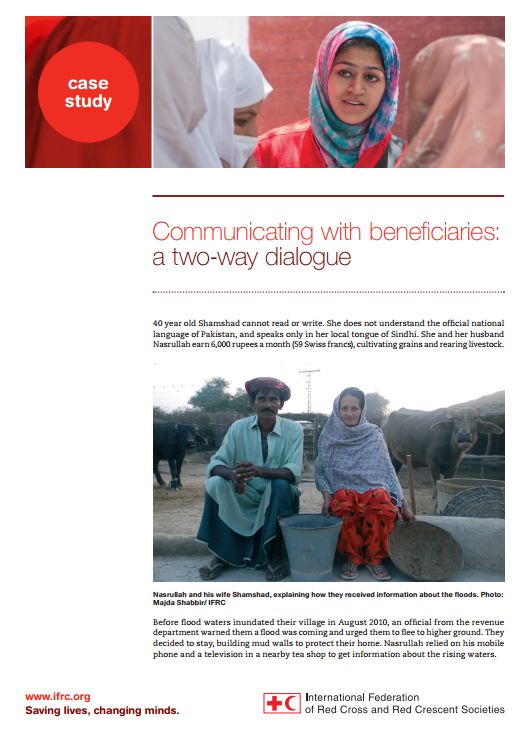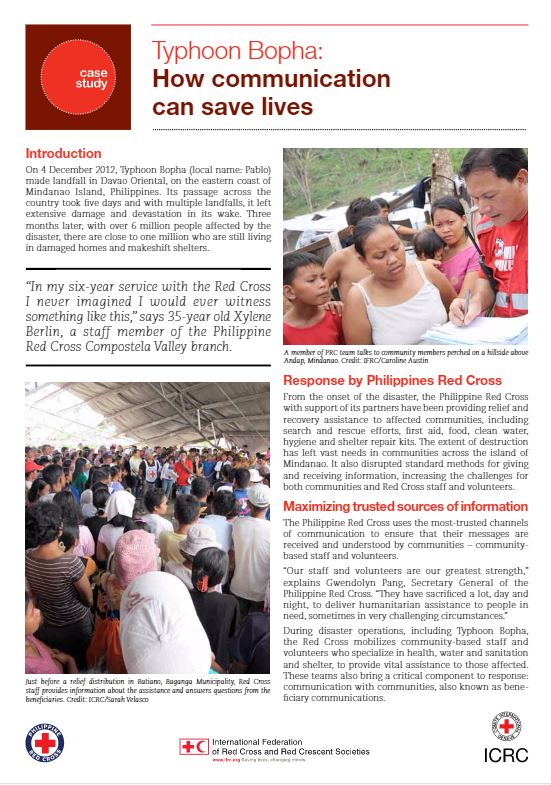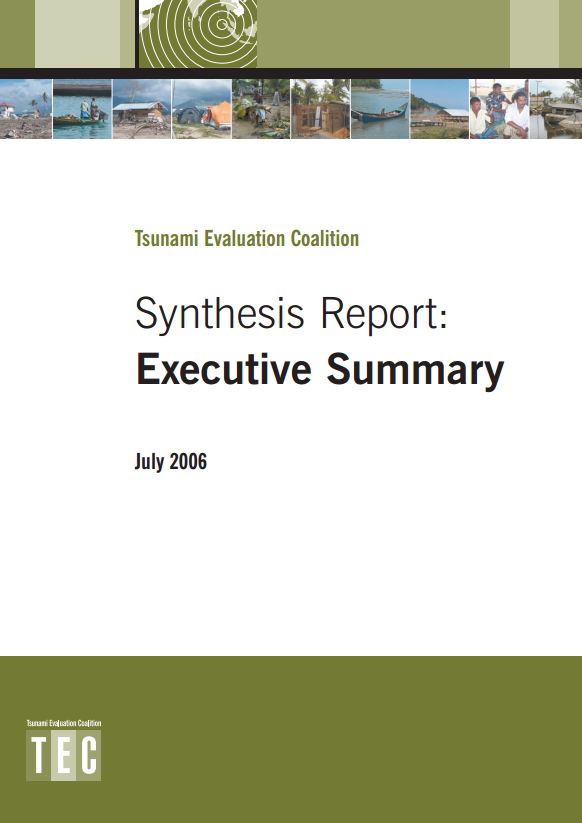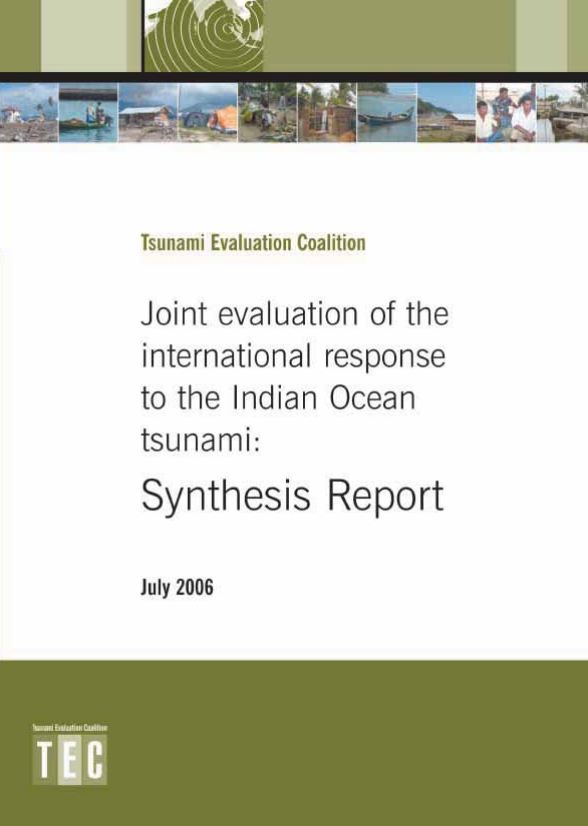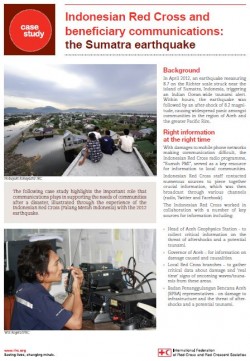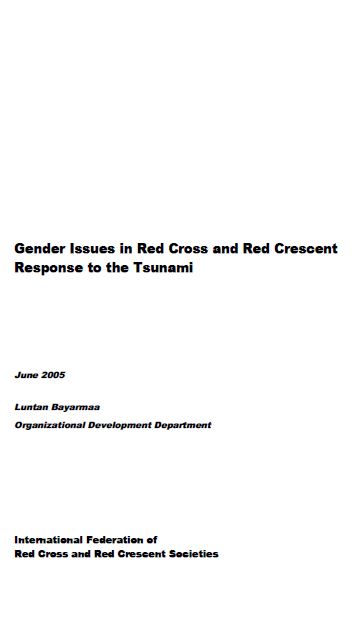Indonesian Red Cross and beneficiary communications: the Sumatra earthquake
Purpose: The document is aimed to share experiences on beneficiary communications to communication staff and volunteers in their activities to support communities after a disaster.
Overview: The document informs about a case study from the experience of the Indonesian Red Cross (Palang Merah Indonesia) with the 2012 earthquake. It highlights the important role that communications plays in supporting the needs of communities after a disaster. Main contents include: Background, Right information at the right time by utilize different communication tools and channels in case of disaster, six learnt lessons.
Usage: Learning from experience
Audience: Communication staff, Volunteers
![]()
Gender Issues in Red Cross and Red Crescent Response to the Tsunami
Purpose
The report summarises the initial outcomes of an action research project launched by the Organisational Development Department to look at the Red Cross and Red Crescent (RC/RC) response to the tsunami from a gender perspective.
The aim of the project is to identify what was, and was not, possible in terms of addressing gender issues in disaster relief as per the commitment of the International Federation, and to investigate the operational and policy implications based on people’s experiences of the Tsunami. Furthermore, the project is intended to contribute to increased awareness and good practices for gender mainstreaming in RC/RC recovery.
Overview
- There is a need to introduce, or re-introduce, the requirement for gender analysis in all standard operating procedures (SOPs) for international responses, and to make sure that they are followed through. The existing standard SOPs do not adequately address gender issues and, at the moment, gender analysis seems to be “optional”.
- There are many operational, and other, barriers to the implementation of the gender policy in emergencies. However, what was not possible in terms of addressing social issues in the relief phase, such as gender and age, is possible and required for the recovery phase.
Usage: Learning from experience
Audiences: National Society leadership; Technical staff; Gender and diversity practitioners
![]()



